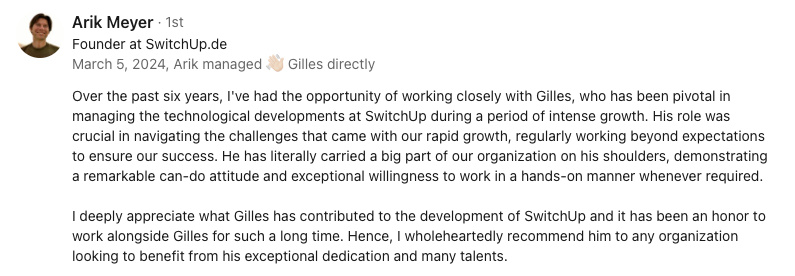Abstract:
Quantum computing, powered by qubits and quantum algorithms, promises unprecedented processing power, with applications in cryptography and various industries. Quantum cryptography employs quantum key distribution for secure communication, while quantum supremacy demonstrates quantum computers' ability to surpass classical counterparts. Technology leaders should grasp quantum computing's potential impact, from optimizing supply chains to revolutionizing finance and pharmaceuticals. To stay ahead, collaboration for quantum computing education is crucial. Embracing these advancements can position organizations to harness their unique benefits, driving innovation and growth.
Intriguing Beginnings: The Quantum Leap
Imagine, if you will, a world where computers can solve complex problems faster than you can say "quantum entanglement." This isn't the plot of the latest sci-fi movie but the promise of quantum computing—a technology so revolutionary it makes ordinary computing look like stone tablets and chisels. Powered by the mysterious workings of qubits and quantum algorithms, quantum computing is not just an advancement; it's a leap into a future brimming with potential. These aren't your average bits and bytes; qubits operate in a state of superposition, allowing them to be in multiple states at once, drastically increasing processing power and making current encryption methods tremble in their digital boots.
At the core of quantum computing lies the power to perform calculations at speeds unfathomable to our current technology. Where traditional computers see insurmountable walls, quantum computers see a walk in the park. It's akin to upgrading from a horse-drawn carriage to a hyper-speed spaceship. This mind-boggling capability sparks a profound curiosity about the transformative impact of quantum computing across various industries. From revolutionizing drug discovery through unprecedented molecular simulations to enabling ultra-secure communications via quantum cryptography, the ripple effects of this groundbreaking technology are poised to redefine what's possible. So, as we stand on the brink of this quantum era, let's explore the wonders of quantum computing and how it promises to unlock a new dimension of technological innovation.
Exploration of Quantum Cryptography
In the realm of digital security, where the lock is only as good as your key, quantum cryptography emerges as the locksmith's ultimate challenge. Imagine a lock that not only changes its configuration every time it’s touched but also alerts you if someone else has tried to tamper with it. This is not the stuff of fantasy; this is the groundbreaking promise of quantum cryptography, particularly through the lens of quantum key distribution (QKD).
The Magic Behind Quantum Key Distribution
At its heart, quantum key distribution is akin to having a conversation where you're certain no one else is listening in. It leverages the principles of quantum mechanics to create a system where two parties can share a secret key used to encrypt and decrypt messages, safe in the knowledge that if an eavesdropper tries to intercept the key, the very act of measurement will alter the quantum state, thus revealing the intrusion. It's as if the key morphs the moment an unwanted guest crashes your private chat, ensuring the sanctity of your communication.
The implications for cybersecurity are nothing short of revolutionary. In a world that's increasingly online, where data breaches make headlines on a seemingly weekly basis, quantum cryptography presents a solution that could end the cat-and-mouse game between data guardians and cyber thieves.
Real-World Application: A Glimpse into the Future
Let's put this into perspective with a hypothetical, yet realistic, scenario: a financial institution looking to transmit sensitive data across the globe. In the pre-quantum era, this operation would be akin to sending a message in a digital bottle, sealed with a complex algorithmic lock. But with quantum cryptography, it's more like teleporting the message directly into the recipient's hands, with the assurance that any tampering attempt will not go unnoticed.
- Banking and Financial Services: Beyond secure messaging, the applications for QKD in banking could include tamper-proof transaction logging, ultra-secure online banking portals, and fraud-resistant systems that leave hackers scratching their heads.
- Government Communications: In an era where state-sponsored cybersecurity threats loom large, quantum cryptography could fortify classified communications, securing them in an impenetrable quantum veil.
- Healthcare Data: Patient records and medical data require the highest level of confidentiality. Quantum cryptography could ensure that sensitive information remains invisible to prying eyes, revolutionizing patient privacy.
While the quantum era dawns bright on the horizon of cybersecurity, it's worth noting that with great power comes great complexity. Implementing quantum cryptography is no easy task, requiring a deep understanding of quantum mechanics and significant infrastructure investments. But for those willing to take the plunge, the payoff could be nothing short of a digital Fort Knox.
In essence, as we continue to weave through the intricate maze of digital security, quantum cryptography shines like a beacon, guiding us towards a future where secure communication is not just an ideal, but a reality. And as the quantum realm unfolds, one thing is clear: the world of cybersecurity is about to get a quantum upgrade, redefining the essence of digital trust.
Understanding Quantum Supremacy
Picture a race where on one side you have a supercharged sports car (representing quantum computers) and on the other, a horse-drawn carriage (symbolizing classical computers). Sure, the carriage has its charm, but when it comes to speed, there's no contest. This scenario paints a vivid picture of what we mean by quantum supremacy: the point at which quantum computers perform tasks that classical computers practically cannot, making them look like relics from a bygone era. It's not just a milestone; it's a testament to the monumental shift in computational capabilities that quantum computing is ushering in.
The Significance of Surpassing Classical Computing
The heart of _quantum supremacy_ lies in its ability to demonstrate quantum computers' superiority over their classical counterparts in performing specific tasks. Imagine solving a labyrinthine puzzle that would take the most powerful supercomputer millennia to complete, and a quantum computer cracks it before you’ve finished your morning coffee. It’s this stark difference in processing capabilities that highlights the quantum leap (pun intended) in computing power. The real-world implications of achieving quantum supremacy are vast, affecting everything from cryptography to complex systems simulation, offering solutions to problems previously thought intractable.
Milestones and Theoretical Examples
Let’s take a moment to appreciate the breakthroughs that have brought us to the brink of this new era. A notable example is Google's quantum processor, Sycamore, which, in 2019, performed a calculation in 200 seconds that would take the world's leading supercomputers 10,000 years to accomplish. This experiment underscored not just the potential but the reality of quantum computing's capabilities, heralding a new dawn of computational prowess.
- Theoretical breakthroughs in quantum algorithms promise solutions to problems like prime factorization, which underpins much of our digital security, and could revolutionize everything from cryptography to logistics.
- Practical applications have moved from the realms of theory into tangible progress, with industries from pharmaceuticals to finance closely watching as quantum computing starts to solve complex molecular structures and optimize financial models in ways previously unimaginable.
Skeptics might argue that the road to widespread quantum supremacy is still long and fraught with technical challenges—from qubit coherence to error rates that need mastering. Yet, the pace of innovation in quantum computing has a way of turning skeptics into believers. As we edge closer to making quantum supremacy a consistent reality across a range of tasks, the phrase "That's impossible" might just become "That's quantum."
In summary, understanding quantum supremacy is not just about acknowledging the feats of quantum computers today but recognizing the seismic shift they promise for tomorrow. It’s a fascinating chapter in the story of computing, one that’s still being written, with each breakthrough leading us into uncharted territories of possibility. So, as we stride forward, let's not just watch; let's cheer on the quantum racers as they prepare to leave classical computing in the dust.
Applications of Quantum Computing Across Industries
As we peer over the horizon, quantum computing emerges like a beacon of innovation, promising to revolutionize industries in ways that were once the stuff of science fiction. Imagine a world where traffic jams in supply chains are as antiquated as dial-up internet, where financial markets operate with prescient efficiency, and where pharmaceutical research moves at warp speed. This is not a flight of fancy but the imminent future heralded by quantum computing. Let’s embark upon a journey to explore the transformative impact of quantum computing across key sectors.
Optimizing Supply Chains: The Quantum Leap in Logistics
Supply chain logistics, notorious for their complexity, stand on the brink of a revolution. Quantum computing promises to untangle these complex webs, optimizing routes and inventory with a finesse that outpaces traditional computing like a Formula 1 car overtakes a bicycle. Consider the potential of quantum algorithms to process and analyze massive datasets in real-time, identifying the most efficient routes and reducing wastage. The result? A leaner, more responsive supply chain that can adapt to disruptions with the agility of a cat, substantially reducing costs and improving customer satisfaction.
Transforming Finance: A Quantum Financial Odyssey
The financial sector, with its Byzantine complexity, is ripe for the quantum revolution. Imagine a world where quantum computing could predict market fluctuations with uncanny precision, revolutionizing risk assessment and portfolio management. Algorithms that now take days to compute in the search for optimal trading strategies could be executed in moments, opening up new frontiers in high-frequency trading. This is not mere speculation; it’s a glimpse into a future where quantum computing could amplify financial models' accuracy, making alchemists envious of our ability to turn data into gold.
- Portfolio Optimization: With its unparalleled processing power, quantum computing could sift through countless investment combinations to identify the most promising portfolios, helping investors navigate the turbulent seas of the financial markets with the steadiness of an ancient mariner.
- Fraud Detection: Quantum computing could enhance the detection of financial fraud, transforming patterns hidden in the data into clear signals of malfeasance. It's like having a financial detective with superhuman intuition on your team.
Accelerating Pharmaceutical Research: The Dawn of Quantum-Driven Discoveries
In the realm of pharmaceutical research, the advent of quantum computing heralds a new era of accelerated discovery. The meticulous process of drug design and testing, which currently unfolds over decades and billions of dollars, could be dramatically expedited. Quantum computers, with their ability to simulate molecular interactions at quantum levels, could unveil the mysteries of complex diseases in a fraction of the time. This quantum leap could catalyze the development of life-saving drugs, transforming what was once a painstaking odyssey into a brisk stroll through the park of innovation.
- Protein Folding: One of the Holy Grails of pharmaceutical research, the folding patterns of proteins hold the key to understanding diseases at a molecular level. Quantum computing could illuminate this dark corner of biology, unlocking new pathways for treatment.
- Drug Simulation: Quantum computers could simulate the effects of drugs on the human body with unparalleled precision, predicting efficacy and side effects long before clinical trials, and weaving safety into the very fabric of pharmaceutical research.
In a nutshell, the integration of quantum computing into various industries promises not just incremental improvements but a paradigm shift in how we solve complex problems. As we stand on the cusp of this quantum era, the message is clear: quantum computing is not just an upgrade; it's a redefinition of the possible. So, buckle up; the future is quantum, and it’s closer than it appears.
The Future of Quantum Computing and Organizational Preparedness
As we gaze into the crystalline lattice of the quantum future, it becomes clear that the fusion of visionary leadership and technological innovation will be the cornerstone of the next era in computing. The quantum age not only beckons us with promises of computational miracles but also challenges us to elevate our game in organizational readiness and strategic foresight.
Leadership at the Quantum Frontier
Stepping into the quantum realm requires a breed of leaders who aren't just tech-savvy but are also forward-thinking pioneers. Such leaders embrace the swirl of qubits with open arms, recognizing that the journey into quantum computing is more akin to an expedition than a casual stroll. They understand that the secret sauce to harnessing quantum computing’s potential lies in a culture of continuous learning and innovation. Emphasizing future-focused leadership, these trailblazers champion the cause of equipping their teams with quantum knowledge, ensuring that when the quantum wave hits, their organizations will be surfing rather than floundering.
Quantum Collaboration: A Symphony of Minds
No lone genius will unlock the full spectrum of quantum computing’s benefits. It will be an ensemble performance—a symphony of minds across academia, industry, and governmental bodies. The cross-pollination of ideas and resources in quantum computing education is crucial. Think quantum hackathons, collaborative labs, and open-source quantum projects sparking innovation and seeding the quantum workforce of tomorrow. Here, the whole orchestration aims to achieve not just fluency in quantum computing but to foster an ecosystem ripe for breakthroughs and practical applications.
- Strategic Advantages: Organizations that embrace quantum computing early on are likely to enjoy a substantial head start. Imagine unveiling new materials, optimizing logistics, or cracking financial models at a pace that leaves competitors in the quantum dust. This is not just about keeping up; it’s about leading the charge into uncharted territories.
- Visionary Innovation: Quantum computing holds the key to solving problems that are currently out of reach. Whether it’s climate modeling that could save coastal cities or the development of personalized medicine, the potential for societal impact is immense.
As we concoct this potion of innovation, leadership, and collaboration, the whirlwind adventure into the quantum future is not just promising—it's exhilarating. With every quantum gate we open, we’re not just coding; we're painting strokes on the vast canvas of possibility. Let the spirit of quantum computing imbue our endeavors with a capacity for wonder and a hunger for exploration. After all, the future is quantum, and it's a future brimming with potential for those prepared to embrace it.














